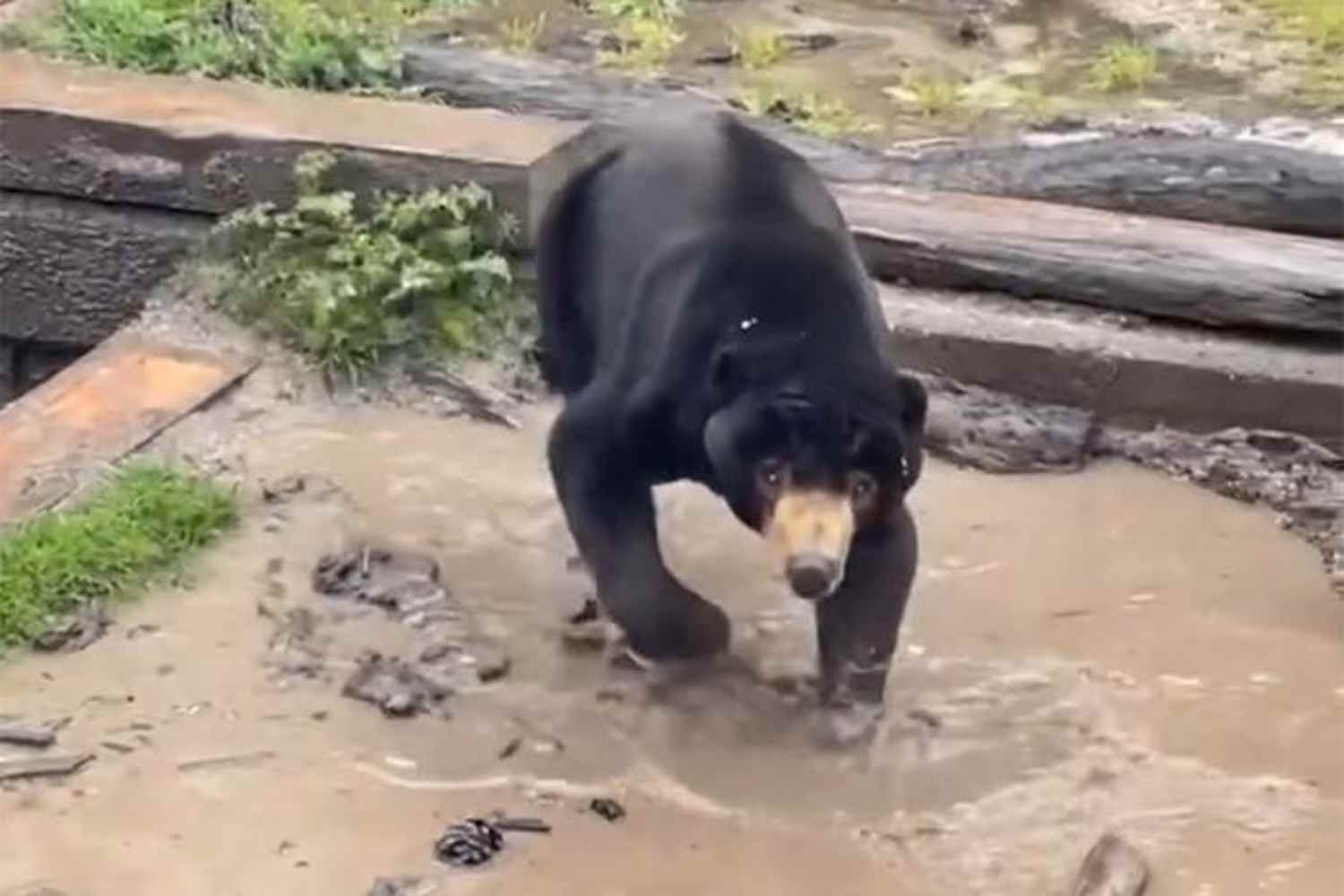The disturbing images from the Madrid Zoo Aquarium show a Malayan bear in poor health and with repeated stereotyped movements, a symptom of malnutrition and stress. The complaint was made by FAADA, a Spanish foundation committed to the defense of wild and companion animals

@FAADA
Shocking images from the Zoo Aquarium in Madrid show a Malayan bear (Helarctos malayanus) exhibiting clear signs of neglect, including a deteriorated physical condition and repetitive, stereotypical behaviors.
The images were brought to light by FAADA, a Spanish foundation dedicated to the protection of wild and companion animals, which gathered footage from some park visitors.
Stereotypic behaviors: a sign of distress and suffering
Stereotypies are repetitive, coordinated, and rhythmic movements, postures, or sounds performed in the same way without a clear purpose. In this specific case, the animal displays a stereotyped movement known as “pacing,” where the bear walks along the same path repeatedly without stopping.
Stereotypies are one of the most widely used indicators of poor welfare, as they often signal stress, boredom, and/or frustration.
Malayan bears, the smallest bear species, are classified as vulnerable by the IUCN due to hunting and habitat loss. Agile climbers, they can reach heights of up to 26 feet and rest among branches and leaves. However, in zoos, they are rarely provided with an environment that supports these natural behaviors.
Through the #InfoZOOS coalition (@FAADAorg and @andaasociaciondefensaanimales), we will reach out to the Zoo Aquarium in Madrid to inquire about the bear’s conditions and whether the center is taking any steps to improve its physical and mental well-being, the foundation has stated.
A global issue of animal suffering in captivity
Unfortunately, these images are not exceptional or unique. On the contrary, it is far too common to witness animals in zoos around the world develop repetitive and compulsive behaviors due to the unnatural living conditions in which they are confined. These behaviors are the result of deep frustration, a silent cry for freedom that humans often fail to hear.
Animals are living beings that deserve to live in environments that respect their nature, without sacrificing their dignity for the sake of entertainment. Every time we look into their eyes, we know that behind their sadness lies a humanity we should not ignore.
